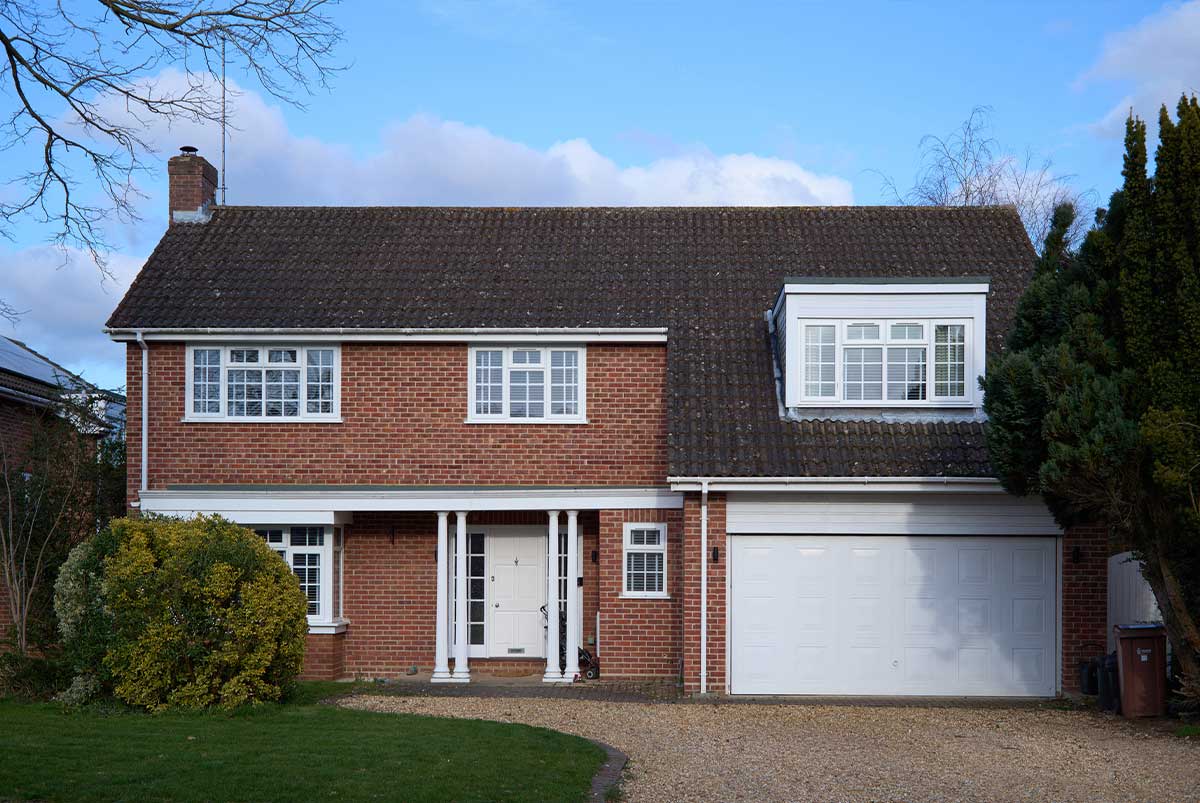Ready To Buy a Home?
Get Approved to Buy a Home
Rocket Mortgage® lets you get to house hunting sooner.
The home buying process may have you wading through unfamiliar waters, including the navigation of legalese. And one of the terms you may come across during this process is “fee simple.”
Whether you’re deep into your buyer’s journey or have only gotten as far as casually scrolling through real estate websites, it’s helpful to know the definition of fee simple and the different types of fee simple estates.
Simply put, fee simple ownership means you’re in complete control of the property you own, and your ownership is mostly free from any restrictions. As the fee simple owner, you can live on the property, modify it, give it away or sell it.
After reading this article, you’ll understand fee simple in real estate and how it might affect you.
Fee Simple Ownership, Defined
Fee simple ownership gives an owner the freedom to do just about anything they want with their property — as long as they aren’t breaking any laws or violating any legal restrictions.
While fee simple is the more widely accepted term to describe this type of estate ownership, the same bundle of rights can go by other names, including fee ownership, estate of ownership or absolute ownership.
How Fee Simple Works
Fee simple ownership entitles an owner to the complete set of property rights (aka bundle of rights).
An owner’s bundle of rights includes the right to possess the property, the right to deny entry to others and the right to sell the property or give it away.
Fee simple ownership also allows property owners to:
- Build new structures: Want to install a swimming pool, build a storage shed or a detached garage? Go for it!
- Put additions on the property: Want to add a new bedroom or a raised deck? Have at it!
- Sell the property or pass on ownership: It’s your property. You can sell it, donate it, gift it or will it.
- Rent the property: You can rent or lease the property or enter into a joint tenancy agreement.
- Use it as collateral: You can use the property as collateral for a home equity loan or a home equity line of credit (HELOC).
What is an example of fee simple?
The typical single-family home sale is a fee simple purchase. When you buy a home, the owner has (or should have) the bundle of rights attached to the property. When the owner sells you the home, they legally transfer their fee simple ownership rights to you once the purchase is complete.
What are the restrictions associated with fee simple ownership?
Fee simple ownership is the broadest form of real estate ownership, but there are still rules and restrictions fee simple owners have to follow.
- You need to pay taxes: Fee simple ownership doesn’t exempt an owner from paying taxes.
- You need to follow local laws: If a homeowner wants to make improvements like building an addition or an extra bathroom, the appropriate building permits must be used, and the work must follow local laws.
- You can’t keep everyone out: If the police come knocking at your front door with a warrant or probable cause, you can’t keep them out. Public utilities and other organizations may also access your property on an as-needed basis.
- A third party can put a lien on your property: A lien is a claim to a property that’s being used as collateral to satisfy a debt. If you take out a loan to purchase a home, the lender has a legal claim to the home until your mortgage is paid off.
And consider this: liens on property aren’t limited to banks or other lenders. There are several types of liens that can be placed on a property, including IRS liens, judgment liens, mechanical liens and child support liens.
As long as an owner settles or removes any liens, they’ll hang on to their fee simple ownership rights. If the lien isn’t resolved, the lien holder has the right to force a sale or foreclose on the property. Other types of liens can also interfere with your ability to sell your property.
Fee Simple Types
The term “fee simple” is something of a blanket term, so it may be helpful to distinguish between the two key types of fee simple estates: fee simple absolute and fee simple defeasible.
Fee simple absolute
Fee simple absolute is the total ownership of real estate, restricted only by laws and any applicable mortgages or liens. When people use the term “fee simple” without specifying whether it’s absolute or defeasible, that usually means it’s fee simple absolute.
Fee simple defeasible
Fee simple defeasible is a variation of fee simple that can result in control of a property going back to the previous owner if certain conditions are violated. A deed that is fee simple defeasible has the same benefits as a fee simple property, subject to any limitations outlined in the deed.
Other types of fee simple defeasible include:
- Fee simple subject to condition subsequent: This is like fee simple absolute, but there is a condition(s) the owner must follow. If that condition isn’t met, the grantor (the individual or party that sold the property) can reclaim the property.
- Fee simple determinable: If the owner violates or fails to meet any conditions, the property automatically transfers back to the grantor.
Understanding Fee Simple Ownership vs. Leasehold Ownership
Fee simple ownership, which is often contrasted with leasehold ownership, has a few fundamental differences.
With leasehold property ownership, there are rights to a home for a specified period of time, but not the land. At the end of the lease, the right to use the land returns to the owner.
Leasehold ownership isn’t very common in the U.S., but they commonly exist for homes with shared property, like condominiums and townhouses.
Think of leasehold ownership as a long-term rental. You live on the property for the duration of the lease, and you get the fee simple owner’s permission to make any changes to the property. At the end of the leasehold or “rental period,” any improvements you made become the property of the owner.
Fee simple ownership, on the other hand, gives the holder of the deed the rights of ownership forever.
Fee Simple, Simplified
Fee simple is generally the preferred way to own a home in the U.S. because it gives you the most control. Fee simple ownership allows you to live in, develop, sell, gift or lease your property to others. Fee simple is the most all-encompassing way to take ownership of a property, granting you the full rights of use and enjoyment for as long as your name is on the deed.
Take the first step toward buying a home.
Get approved. See what you qualify for. Start house hunting.
The Short Version
- Fee simple means the owner of a property has complete, unrestricted control and ownership over the property
- In contrast to a leasehold estate, which has a defined time limit, fee simple gives the property owner rights for an unlimited period of time
- Fee simple can be either absolute (without limitations) or defeasible (subject to certain conditions)
Capitol.Hawaii.gov. “Real Property Leases; Renegotiation.” Retrieved April 2022 from https://www.capitol.hawaii.gov/session2003/bills/SB905_.htm



